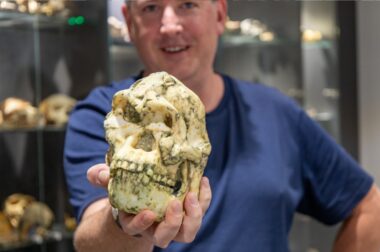21 March 2024
Animal-Free Science Advocacy pushes for dedicated funding for animal-free medical research
Animal-Free Science Advocacy (AFSA) is calling for urgent investment in animal-free research methods in line with international developments. AFSA’s ‘I am not a lab tool’ campaign, will intensify with an in-store partnership with Lush Australia between 21 March and 10 April, during which customers will be encouraged to call on the Federal Government to fund human-relevant research methods that are better for humans, animals and the environment.
Over 30 years ago in 1989, a Senate Select Committee on Animal Welfare recommended ‘that the Commonwealth Government establish a separate fund for research into the use of alternatives to animal experimentation and that grants be disbursed from this fund” yet this has still not happened. This is despite overwhelming public support for alternatives to using animals in scientific research, evident from a 2022 public survey.
This contrasts with significant funding investment overseas, with the Dutch National Growth Fund announcing 124.5 million euros in a new centre for animal-free biomedical testing, the UK Government announcing a doubling in their funding for the National Centre for the Replacement, Refinement and Reduction of Animals in Research, and the US National Institute of Health establishing a new research program which funds the development, standardisation, validation, and use of new (non-animal) methods and approaches to research.
Recent years have seen preliminary steps towards a transition to animal-free research in Australia. In 2021, a parliamentary inquiry was established to inquire into, and report on, the use of primates and other animals in medical research in New South Wales. Resulting recommendations included; rapid phase out of the forced swim test and nose-only smoke exposure research in NSW (since prohibited with an amendment to the NSW Research Act), commitment of funding to enable the establishment and operation of a national flagship 3Rs (replacement, reduction and refinement) and measures to enhance transparency, strengthen compliance and encourage national consistency in reporting.
In August 2023 a landmark report on non-animal models was released by CSIRO Futures, the strategic advisory arm of Australia's national science organisation, which examined the the potential of non-animal models and the actions Australia will need to take to pursue their use. The most notable recommendations are 1) a national centre or consortium for non-animal methods, 2) a dedicated funding scheme 3) national data collection standards for animal use, 4) to align regulatory processes in support of use of non-animal models, and 5) to develop a national biobanking and tissue collection network.
It is crucial that the CSIRO report recommendations are implemented to realise the economic potential of non-animal models, generate translatable health outcomes for patients, and remove ethical concerns associated with animal experimentation. The opportunities are clear, but without a clear commitment from federal government, progress will stall, and animals will continue to be the default model in medical research, despite growing scientific and ethical concerns.
Animal-Free Science Advocacy CEO Rachel Smith comments "In Australia, there is currently no institution taking responsibility for funding alternatives, despite an obligation to only use animals in research when there is no alternative. Without government commitment to facilitate greater accountability and allocate funding towards the innovation of non-animal alternative methods, there’s very little incentive for Australian researchers and institutions to stop using animal methods and we will fall further behind other countries where a transition to animal-free methods is a clear end goal".
AFSA is calling for:
- An ongoing federally funded research funding stream for the development of non-animal based scientific testing
- More transparent reporting on the use of animals in in science and education
- A commitment to developing an Australian Centre for the Development and Validation of Alternatives.
- Review of The Australian Code for the Care and Use of Animals for Scientific Purposes to strengthen principles and encourage mandating of replacement methods and the funding thereof in state and territory legislation.
ENDS
Key Facts:
Key Points
- AFSA will partner with Lush Australia to promote Federal Government funding for animal-free research method
- Australia is lagging behind with no designated funding for the development and validation of non-animal research methods
- A CSIRO report identified economic and scientific potential of non-animal models
About us:
ANIMAL-FREE SCIENCE ADVOCACY
Animal-Free Science Advoacy is a not-for-profit organisation advocating scientifically valid animal-free methods of research.
Animal-Free Science Advodacy has produced Media Guidelines for reporting on animal use in medical research.
Contact details:
For Interview Requests:
Rachel Smith
Chief Executive Officer Animal-Free Science Advocacy
0415 227 815


